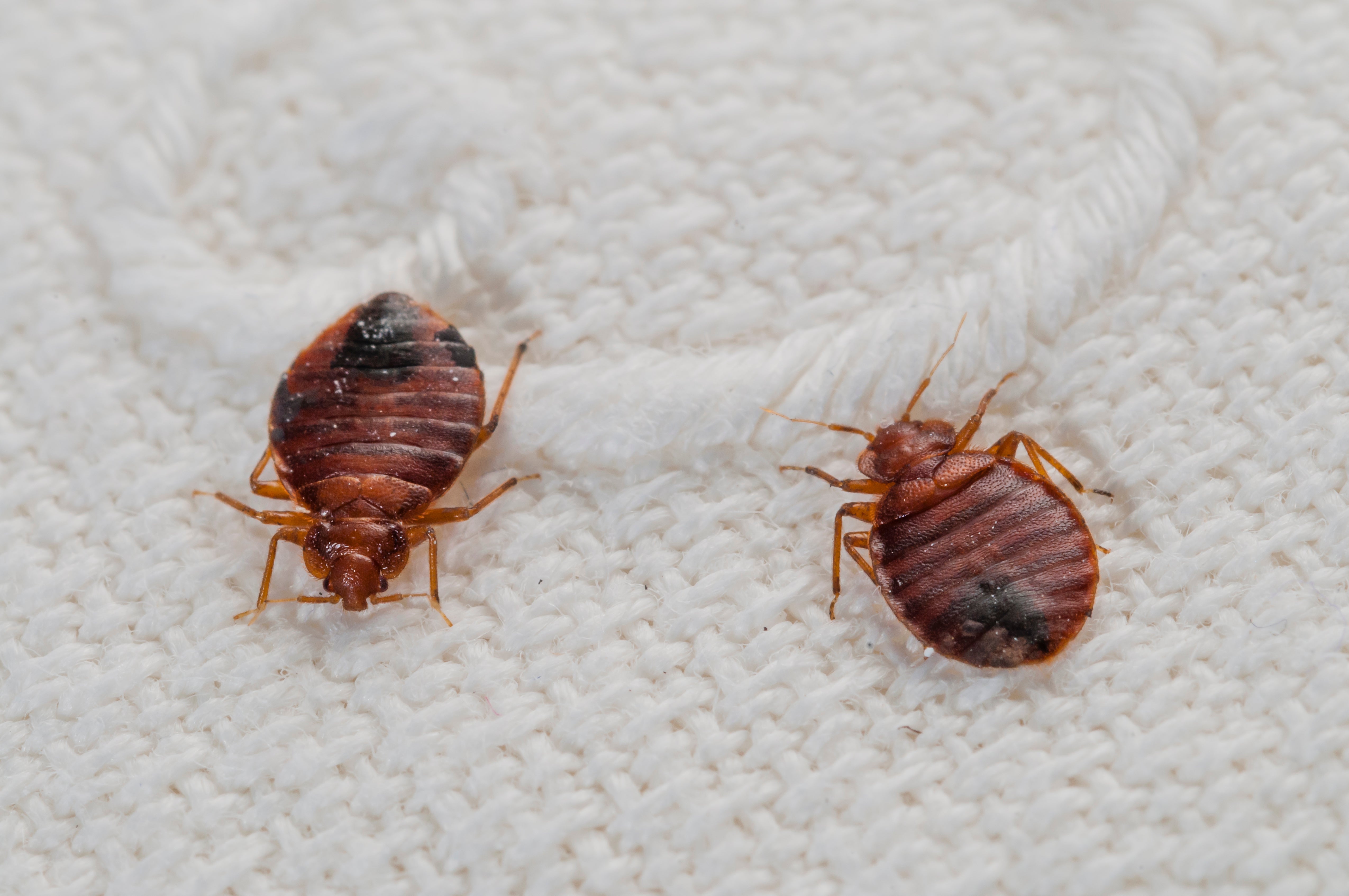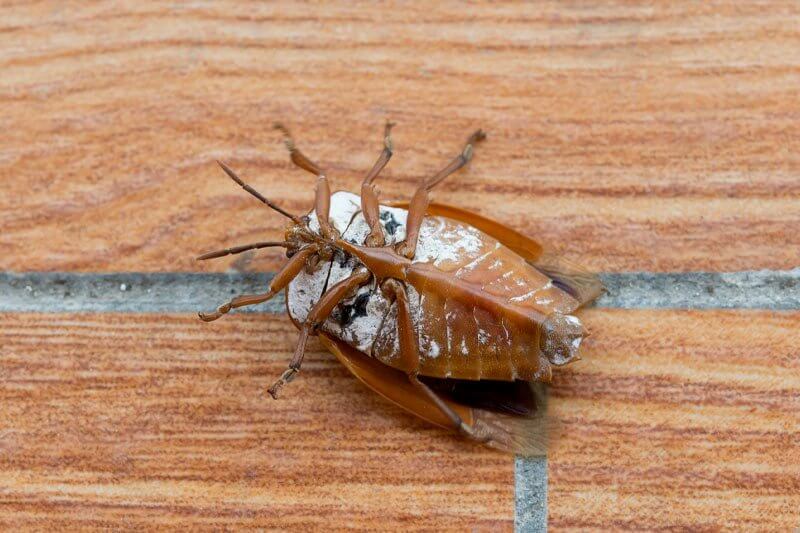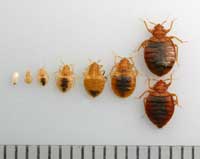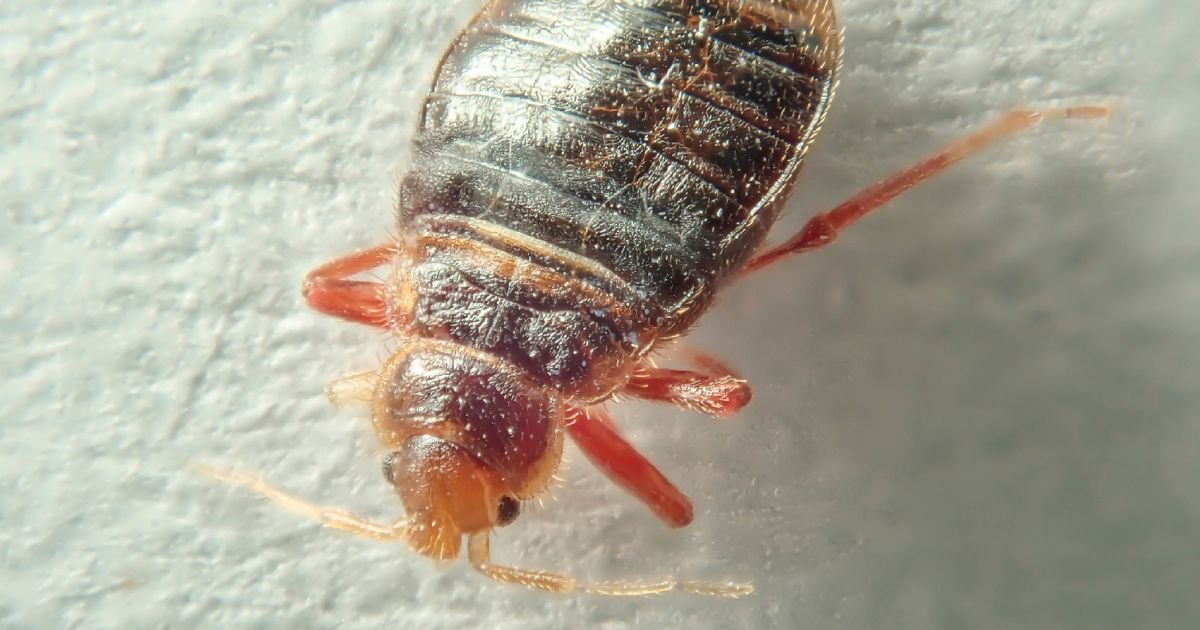Bed bugs can die without eating in about 20 to 400 days, depending on environmental conditions. Bed bugs, scientifically known as Cimex lectularius, are small, oval-shaped insects that feed on the blood of humans and animals and can survive for long periods without a blood meal.
This ability to endure starvation makes them resilient pests that can be challenging to exterminate. Understanding the timeline of how long bed bugs can survive without food can be crucial for effective pest control measures. We will explore the factors that affect the lifespan of bed bugs without access to blood, and provide insights into how long it takes for bed bugs to die without eating.
By knowing this information, individuals can better manage infestations and take proactive steps towards eradicating these resilient pests from their homes or businesses. Bed bugs typically feed every 5 to 10 days, depending on environmental conditions and their life stage. However, they are capable of surviving for extended periods without access to a blood meal. This remarkable ability to endure starvation enables bed bugs to persist in various environments, making them a persistent and challenging pest to eliminate.

Credit: www.scientificamerican.com
Bed Bug Lifespan
Understanding the lifespan of bed bugs is crucial for effective pest control and management. These resilient pests can survive for several months without a blood meal, making it important to know how long they can live without feeding. From the various stages in their life cycle to the factors that impact their lifespan, let’s delve into the fascinating world of bed bug longevity.
Stages In A Bed Bug’s Life Cycle
Bed bugs undergo a simple life cycle, consisting of egg, nymph, and adult stages. The entire process from egg to adult typically spans about 6-8 weeks under favorable conditions.
| Life Stage | Duration |
|---|---|
| Egg | 1-2 weeks |
| Nymph | 4-5 weeks |
| Adult | 4-6 months |
Factors Affecting Bed Bug Lifespan
- Temperature: Warmer climates accelerate their development and metabolism, leading to shorter lifespans.
- Feeding Frequency: Regular blood meals prolong their lifespan, while prolonged starvation can reduce it significantly.
- Environmental Conditions: Humidity levels and availability of hiding places directly impact their ability to survive without feeding.
Survival Without Feeding
Duration Bed Bugs Can Survive Without Eating
Bed bugs are persistent pests known for their ability to survive for long periods without a blood meal. In ideal conditions, bed bugs can survive without feeding for up to six months. This remarkable resilience enables them to persist even in the absence of a host, making bed bug elimination a challenging task.
Effects Of Starvation On Bed Bugs
When bed bugs are unable to feed, the effects of starvation become evident. Extended periods of starvation can lead to decreased activity, reduced reproduction, and eventual death. As a result, starving bed bugs may exhibit weakened physical health, making them more susceptible to control methods.
Methods Of Elimination
Chemical Treatments For Bed Bug Eradication
Chemical treatments are effective and quick in eliminating bed bugs.
Non-chemical Approaches To Eliminate Bed Bugs
Non-chemical methods focus on natural ways to eradicate bed bugs.

Credit: privateexterminator.com
Preventive Measures
Bed bugs can survive for several months without feeding. However, they may die within 70 days without a blood meal, as their survival depends largely on environmental conditions and temperature. To prevent bed bug infestations, maintaining a clean and clutter-free environment, regularly vacuuming and inspecting for signs of bed bugs are essential preventive measures.
Tips For Preventing Bed Bug Infestations
Preventing bed bug infestations is crucial to ensure a comfortable and peaceful sleep environment. By implementing these simple yet effective tips, you can significantly reduce the chances of these blood-sucking pests finding their way into your home.
- Inspect Used Furniture: Before bringing in any second-hand furniture, thoroughly examine it for signs of infestation. Look for dark spots, shed skin, eggs, or live bugs.
- Encase Your Mattress: Invest in high-quality bed bug-proof mattress encasements. These protective covers create a barrier between your mattress and any potential bed bugs.
- Be Careful While Traveling: Bed bugs love hitchhiking, so take precautionary measures while staying in hotels or other temporary accommodations. Keep your luggage elevated and inspect your room for any signs of infestation.
- Declutter Your Space: Clutter provides an ideal hiding spot for bed bugs. Regularly declutter your home to minimize potential habitats for these pests.
- Seal Entry Points: Seal any cracks, crevices, or gaps in walls, floors, or windows to prevent bed bugs from entering your home.
How To Avoid Bed Bug Resurgence
Even if you’ve successfully eliminated a bed bug infestation, it’s crucial to remain vigilant to prevent a resurgence. Follow these practices to ensure these pesky critters don’t make a comeback.
- Vacuum Regularly: Vacuum your home frequently, paying special attention to bedrooms, mattresses, box springs, bed frames, and upholstered furniture.
- Steam Clean: Consider using a steam cleaner on furniture, curtains, and carpets. The high temperatures kill bed bugs and their eggs.
- Wash and Dry on High Heat: Thoroughly wash and dry your bedding, clothes, and curtains on high heat settings to eliminate any potential bed bugs.
- Monitor Your Pets: Bed bugs can hitchhike on pets and infest their bedding. Regularly inspect your pets’ sleeping areas for any signs of infestation.
- Professional Inspection: If you suspect a bed bug resurgence or have any concerns, consider hiring a professional pest control service for a thorough inspection and treatment, if necessary.
By following these preventive measures and implementing these tips, you can safeguard your home and prevent bed bug infestations from disturbing your peace and tranquility. Remember, early detection and proactive action are the keys to keeping your humble abode bed bug-free!
Signs Of Infestation
When it comes to bed bug infestations, it’s important to be able to recognize the signs early on. Acting promptly can help prevent the situation from escalating and minimize the risks of further infestation. In this section, we’ll discuss the common signs of bed bug infestations and the detection methods you can use to identify them.
Common Signs Of Bed Bug Infestations
Bed bugs are tiny insects that can easily go unnoticed, but there are telltale signs that can indicate their presence in your home. Some common signs of bed bug infestations include:
- Bloodstains on the sheets or pillowcases: Prolonged feeding by bed bugs can result in bloodstains on your bedding.
- Dark spots or smears on the mattress or furniture: These spots are usually a combination of bed bug feces and shed exoskeletons.
- Small, itchy bites on your skin: Bed bugs are known to leave behind red, itchy bite marks.
- Musty odor: Bed bugs release a distinct, unpleasant odor described as sweet and musty. If you notice this smell in your bedroom, it’s a potential sign of infestation.
Remember, the presence of one or more of these signs doesn’t necessarily mean you have a full-blown infestation. It’s important to carry out further investigations to confirm the severity of the issue.
Detection Methods For Bed Bugs
To confirm a bed bug infestation, you can use different detection methods. These include:
- Visual inspection: Carefully examine the areas where bed bugs are more likely to hide, such as mattress seams, headboards, and furniture crevices.
- Using a flashlight: Illuminate dark corners and crevices to spot any live bed bugs or their droppings.
- Bed bug interceptors: These devices are placed under the legs of furniture to trap bed bugs as they crawl towards you in search of blood.
- Bed bug sniffing dogs: Specially trained dogs can sniff out the presence of bed bugs, providing a more accurate assessment.
Once you’ve identified the signs of a bed bug infestation using these methods, it’s important to take appropriate action to eliminate these pests as soon as possible. Early detection can save you from sleepless nights and costly extermination services.

Credit: ipm.ucanr.edu
Professional Extermination
Professional Extermination Overview
Did you know that bed bugs can survive for several months without feeding? However, professional extermination remains a highly effective solution to eradicate them.
When To Seek Professional Help
Visible Infestation: When you observe a significant bed bug infestation in your home, it’s time to call professional pest control services.
Recurring Infestations: If you’ve attempted DIY treatments without success and the bed bugs keep coming back, it’s best to seek professional help.
Benefits Of Hiring Pest Control Services
- Expertise: Pest control professionals have the knowledge and experience to effectively eliminate bed bug infestations.
- Customized Treatment Plans: Professionals assess the severity of the infestation and tailor their approach accordingly.
- Fast Results: Professional extermination methods are quicker and more efficient than DIY solutions.
- Long-Term Prevention: Pest control services not only eradicate existing bed bugs but also implement preventive measures to deter future infestations.
Frequently Asked Questions Of How Long Does It Take Bed Bugs To Die Without Eating?
How Long Can Bed Bugs Survive Without Feeding?
Bed bugs can survive for several months to over a year without feeding. Their survival time depends on various factors such as temperature, humidity, and availability of alternative food sources.
What Happens To Bed Bugs If They Don’t Eat?
When bed bugs don’t have a blood meal, they become dormant and enter a state called diapause. During diapause, their metabolism slows down, allowing them to conserve energy and survive without feeding for extended periods.
Can Bed Bugs Die From Starvation?
Yes, bed bugs can eventually die from starvation if they are unable to find a blood meal. However, they can survive for quite some time without feeding, making them resilient pests that can be challenging to eliminate.
Conclusion
After examining the duration bed bugs can survive without feeding, it’s clear consistent hunger will eventually eradicate them. Understanding these timelines can aid in effective pest control. Remember, employing thorough preventive measures is key to keeping your living spaces free of these persistent pests.
Related posts:

I’m MD Tanvir, and I bring years of expertise gained from working closely with pest control companies to the forefront. My journey in the industry has inspired me to launch Bug Battler, a platform aimed at equipping people with the know-how to combat pests autonomously. Through Bug Battler, I aim to empower individuals with practical insights to tackle pest infestations effectively.

